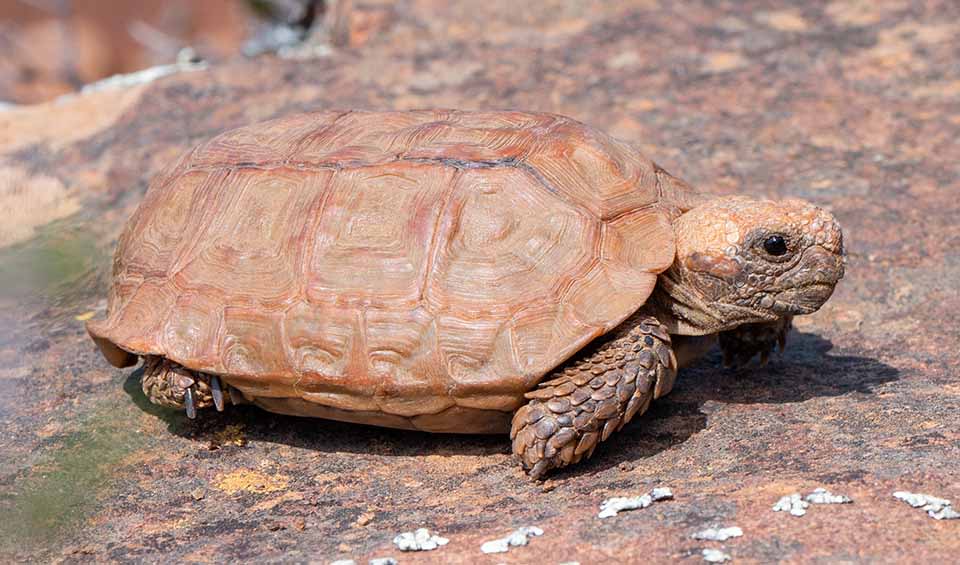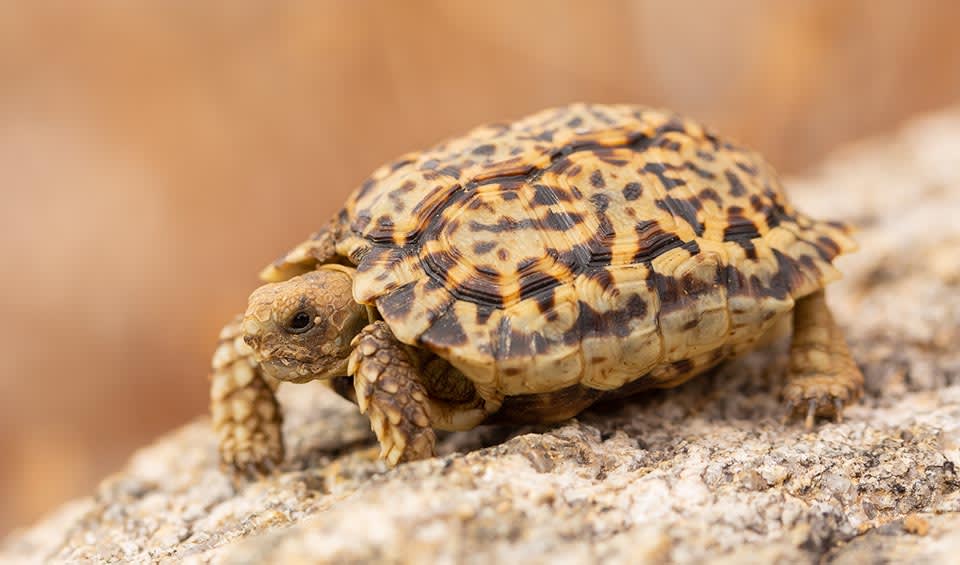Chersobius – Padlopers
Home of the world's smallest tortoise
A genus of tortoises endemic to Africa includes several species, notably the speckled tortoise (Chersobius signatus), the world’s smallest tortoise. Despite their diminutive size, Chersobius tortoises play a significant ecological role within their native habitats, contributing to seed dispersal and vegetation management.
Chersobius tortoises, known for their diminutive size, rank among the smallest tortoise species globally, usually ranging from 3 to 4 inches (7.6 to 10.2 centimeters) when fully grown. Their unique flat, pancake-shaped shell is a defining feature that distinguishes them, hence their common name.
Chersobius, on the other hand, are characterized by their timid and elusive nature, often found basking on rocks or logs close to the water’s edge. They display remarkable aquatic prowess, proficiently swimming, and diving, with the ability to remain submerged for prolonged durations.
These tortoises face many threats to their survival, primarily driven by human activities. Roadkill poses a significant danger to Chersobius populations, as their small size and slow movement make them particularly vulnerable to vehicular collisions. Habitat loss and degradation due to urbanization, agriculture, and infrastructure development further diminish their available habitat, fragmenting populations and limiting their ability to forage and reproduce successfully.
Illegal capture for the pet trade also poses a significant threat to Chersobius tortoises. Every year, countless individuals are unlawfully removed from their natural habitats and sold in the exotic pet market. However, the vast majority of these tortoises perish due to the challenges of captivity, including inadequate diet, stress, and unsuitable living conditions. Moreover, invasive species such as domestic dogs and pigs pose a direct threat to Chersobius tortoises through predation and competition for resources, further compromising their survival.
Species in this genus
Karoo dwarf tortoise
Often look like just another rock or pebble
Speckled tortoise
Endemic to South Africa, it is the smallest tortoise on earth



